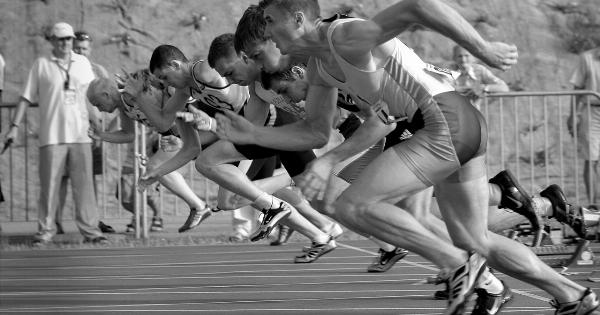Athletes undergo intense physical training and require a well-balanced diet to meet their nutritional needs. However, due to the high demands of training and various factors, many athletes often experience nutrient deficiencies.
These deficiencies can have a significant impact on their performance, recovery, and overall health. In this article, we will discuss the most common nutrient deficiencies among athletes.
Vitamin D Deficiency
Vitamin D plays a crucial role in maintaining bone health and muscle function. Athletes who train indoors or in locations with limited sunlight exposure are prone to vitamin D deficiency.
This deficiency can lead to decreased muscle strength, increased risk of stress fractures, and impaired immune function.
Iron Deficiency
Iron is essential for the production of red blood cells and oxygen transportation. Athletes, especially female athletes, are at a higher risk of iron deficiency due to menstrual blood loss and inadequate dietary intake.
Iron deficiency can result in fatigue, decreased endurance, and impaired recovery.
Calcium Deficiency
Calcium is crucial for maintaining strong bones and preventing stress fractures. Athletes who avoid dairy products or have restricted caloric intake may not meet their calcium requirements.
Calcium deficiency can increase the risk of bone injuries and hinder proper muscle function.
Magnesium Deficiency
Magnesium is involved in over 300 enzymatic reactions in the body, including energy production and muscle function.
Intense exercise can deplete magnesium stores, and athletes who rely on processed foods or have high sweat losses may be at a greater risk of magnesium deficiency. Symptoms may include muscle cramps, cardiac arrhythmias, and impaired exercise performance.
B-vitamin Deficiencies
B-vitamins play a crucial role in energy metabolism and red blood cell production. Athletes who follow restrictive diets, such as vegan or vegetarian diets, or consume inadequate calories may experience deficiencies in B-vitamins.
These deficiencies can lead to reduced energy levels, impaired muscle function, and decreased exercise performance.
Zinc Deficiency
Zinc is involved in various enzymatic reactions, immune function, and protein synthesis. Athletes who restrict overall food intake or follow a low-calorie diet may not meet their zinc requirements.
Zinc deficiency can impair immune function, delay wound healing, and hinder muscle recovery.
Omega-3 Fatty Acid Deficiency
Omega-3 fatty acids have anti-inflammatory properties and contribute to heart health and brain function. Athletes who consume low-fat diets or avoid fatty fish may have inadequate omega-3 fatty acid intake.
Omega-3 fatty acid deficiency can lead to increased inflammation, compromised cardiovascular health, and impaired cognitive function.
Vitamin C Deficiency
Vitamin C is essential for collagen synthesis, iron absorption, and immune function. Athletes with calorie-restricted diets, inadequate fruit and vegetable intake, or high oxidative stress may be at risk of vitamin C deficiency.
This deficiency can impair collagen formation, delay wound healing, and weaken the immune system.
Protein Deficiency
Protein is crucial for muscle repair, growth, and overall recovery. Athletes who do not consume enough protein or have imbalanced macronutrient intake may experience protein deficiency.
Inadequate protein intake can result in muscle wasting, impaired recovery, and reduced muscle strength.
Electrolyte Imbalances
Athletes who engage in prolonged and intense exercise are at risk of electrolyte imbalances, including sodium, potassium, and chloride.
High sweat losses, excessive fluid intake without electrolyte supplementation, or low dietary intake may lead to imbalances. Electrolyte imbalances can cause muscle cramps, fatigue, and impaired performance.
Conclusion
Nutrient deficiencies among athletes are common and can significantly affect their performance, recovery, and overall health.
It is important for athletes to work closely with registered dietitians or sports nutrition professionals to ensure they meet their specific nutrient needs. A well-balanced diet that adequately provides essential vitamins, minerals, proteins, and healthy fats is key to optimizing athletic performance and preventing nutrient deficiencies.




























